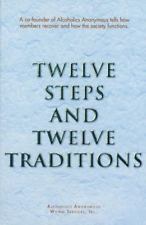
"Each group should be autonomous except in matters affecting other groups or A.A. as a whole."

 |
Tradition Four
"Each group should be autonomous except in matters affecting other groups or A.A. as a whole."
|
 |
Just as survival of the individual alcoholic depends on conformance to spiritual principles, it is written here that the group depends on conformity as well. As in the first Tradition, the penalty for failure is not imposed by the Fellowship, but is dictated by the nature of the situation in which we find ourselves. Specifically mentioned is the need to stick solely to sobriety, avoid affiliation with outside enterprises or identification with political and social issues, as in Traditions Five, Six and Ten, respectively.
An early example is described at great length in which a group, led by a "super promoter", did go into business with a club, rehab facility and the like. New York's advice against this was ignored and the projects went forward. Sixty-one rules for conduct and/or membership were devised, outside money accepted to run these enterprises and the group became divided over these activities - violations of Traditions Three and Seven, and threatening the unity envisioned in Tradition One, as we know them today. The group and even the "super promoter" eventually admitted the mistake and the facilities were abandoned. The infamous Rule #62 was born here: "Don't take yourself too damn seriously."
The author's confident assertion that "...an A.A. group could stand almost any amount of battering," and survive such failed experiments if lessons could be learned, leads him to conclude later: "Every group had the right to be wrong."